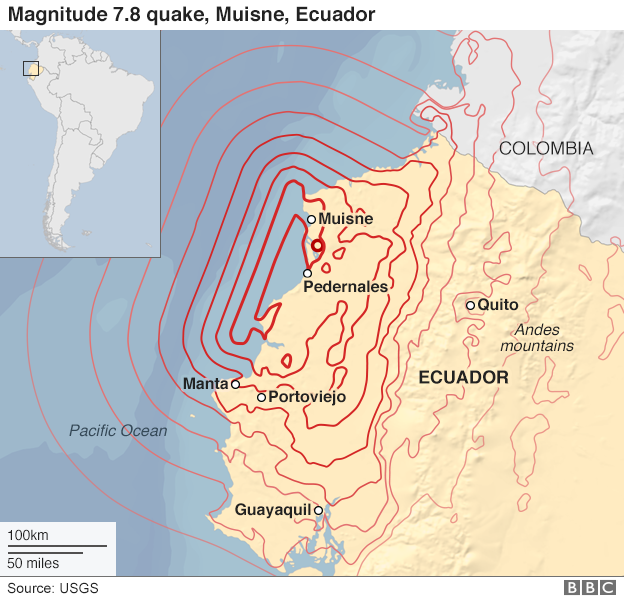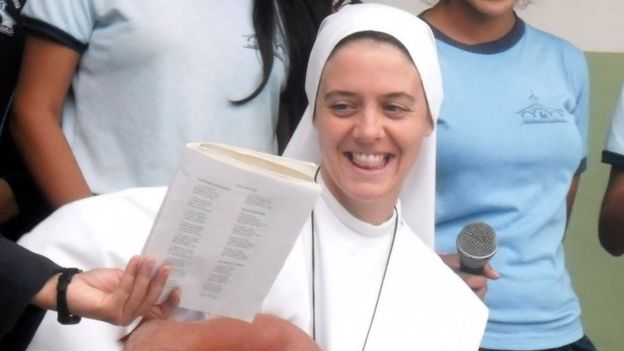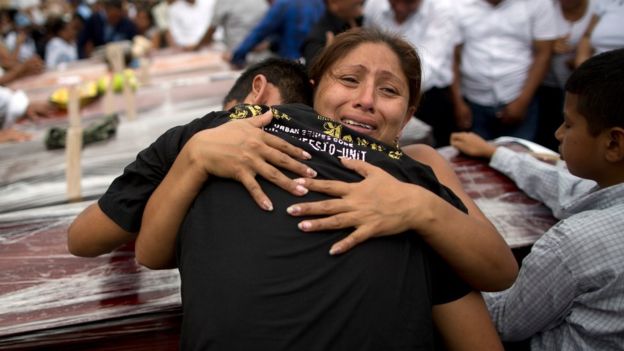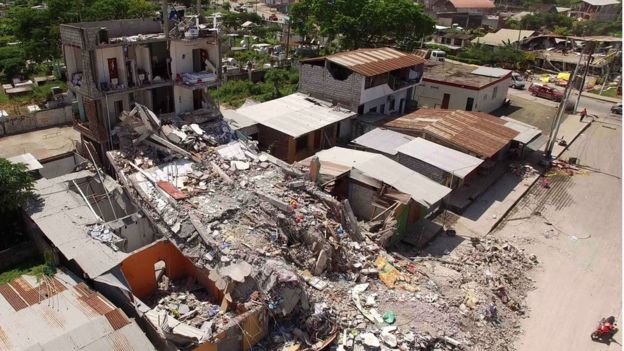Ecuador earthquake: At least 413 people confirmed dead
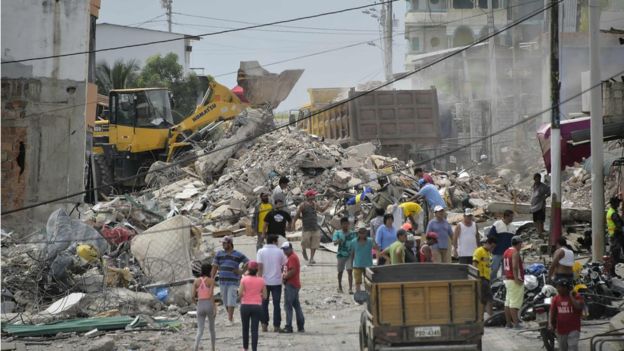
At least 413 people are now known to have died in the earthquake that struck Ecuador, the country's government says.
The 7.8-magnitude quake struck Ecuador's Pacific coast on Saturday, and the search for survivors continues.
The cost of rebuilding is likely to be in the billions of dollars, President Rafael Correa said during a visit to the worst-affected region.
He said it was the biggest tragedy to hit Ecuador in the past seven decades. Some 2,500 people were injured.
Late on Monday, six people, including two girls — one three years old and the other nine months old — were rescued from the ruins of a hotel near the coastal town of Manta.
Elsewhere, funerals for some of those killed were held in Portoviejo and Pedernales, two towns that were the worst hit.
"I fear that figure will go up because we keep on removing rubble," a shaken Mr Correa said in a televised address. "There are signs of life in the rubble, and that is being prioritised."
The quake comes at a time when the oil-producing country is already reeling from the slump in global crude prices.
Luis Almagro, the secretary general of the Organization of American States, said some of the group's rarely used emergency funds would be unlocked and given to Ecuador to help it rebuild.
An hour inland from Pedernales, we come across a digger working its way through a mound of rubble. This, we are told, was Joselo's house — or what's left of it. A three-storey building turned to rubble.
According to the neighbours, most had got out as soon as the earthquake struck. Joselo was trying to get his car out of the garage when the roof collapsed on top of him. A bloodied pillow and his T-shirt lie tossed in a corner of what now looks like a building site.
Dozens of former residents climb on to the rubble and sift through broken stones to recover whatever belongings remain intact.
"I had to make an unexpected trip out of town," says Emilio Solorzano. "Just as well, otherwise I would have been crushed, I'm standing on my bedroom."
Ecuador learns to grieve and hope
Western Ecuador was hit by a number of strong aftershocks on Monday, the largest of which measured magnitude 5.1.
In Pedernales, close to the epicentre, as many as 400 people are feared dead. Mayor Gabriel Alcivar said the "entire town" had been flattened.
"Pedernales is devastated," he told local media. "Buildings have fallen down, especially hotels where there are lots of tourists staying. There are lots of dead bodies.
"We're trying to do the most we can but there's almost nothing we can do," he added, warning that looting had broken out.
Earthquake zone in Ecuador
In Portoviejo, a city of 300,000 people 15km (10 miles) from the coast, rescuers rushed to search the debris of flattened buildings for survivors as residents reported the stench of decaying bodies beneath the rubble.
Some looting was also reported in Portoviejo. "I have to take some advantage from this horrible tragedy," one man, Jorge Esquivel, told Reuters. "I need money to buy food. There's no water, no light, and my house was destroyed."
Hundreds of people in Portoviejo and Pedernales are expected to have to sleep outdoors on Monday night.
In Portoviejo, four members of the same family were killed when a building collapsed on their car, Associated Press reported. The Quinde family had travelled to the city to drop off 17-year-old daughter Sayira, who was due to start university next week.
Elsewhere in Portoviejo, the vibrations reduced part of the city's prison to rubble, allowing 100 inmates to escape. Some were recaptured but others remained on the run, Justice Minister Ledy Zuniga said on Twitter.
In other developments:
Theresa Crockett, a nun from Northern Ireland who was working in Ecuador, is confirmed as being among the victims
Two Canadians, named as Jennifer Mawn, 38, and her son, Arthur, 12, died the earthquake, media in Canada report
One US citizen is among the victims, the State Department says
More than 13,500 emergency workers are deployed, with some 400 coming from nearby South American countries
The US Geological Survey said the earthquake struck at a fairly shallow depth of 19.2km (11.9 miles), about 27km from Muisne in a sparsely populated area.
The quake was also felt in neighbouring Colombia.
Scientists say there is no connection between the quake in Ecuador and a severe tremor in southern Japan, which also occurred on Saturday.
Политика конфиденциальности | Правила пользования сайтом
